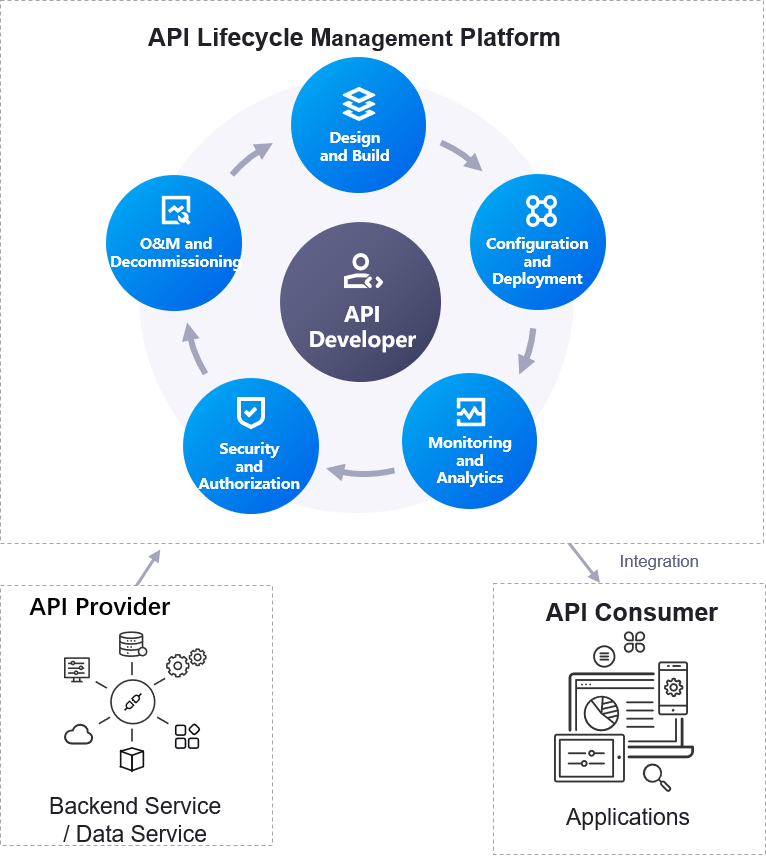About API Management¶
The EnOS API Management (APIM) publishes all the APIs that meet the standards supported by EnOS to API consumers.
The APIM helps organizations publish APIs to external, partner, and internal developers to unlock the potential of their data and services. You can use the APIM to configure specific policies, and control and manage API-specific parameters. It covers the lifecycle of an API, from design to testing, management, and publishing. It also manages the security, flow control, logging, billing, monitoring, and reporting of an API.
The APIM decouples the production and consumption of APIs. When the backend API changes, the frontend application can continue to access the API without modifying the application code or configurations.
The major components and architecture of EnOS API Management is shown in the figure below:

Main Functions¶
Creating APIs: Create APIs that meet OpenAPI 3.0.
Cloning APIs: Create an identical API in the same API group.
Deploying APIs: Deploy the APIs for internal or external use.
Exporting APIs: Export the existing APIs and transfer them to another EnOS environment.
Importing APIs: Import APIs for batch creation.
Updating APIs: Hot update the created API.
Switching API Released Versions: Switch the released API to an older or newer version.
Testing APIs: Test and debug the APIs.
Monitoring APIs: View the status of API calls.
Deleting APIs: Delete APIs that are no longer needed.
API Logs: Query API call logs.
API Authorization: Authorize applications for invoking released APIs.
API Custom Verification: Define custom verification methods for third-party APIs via Lua script.